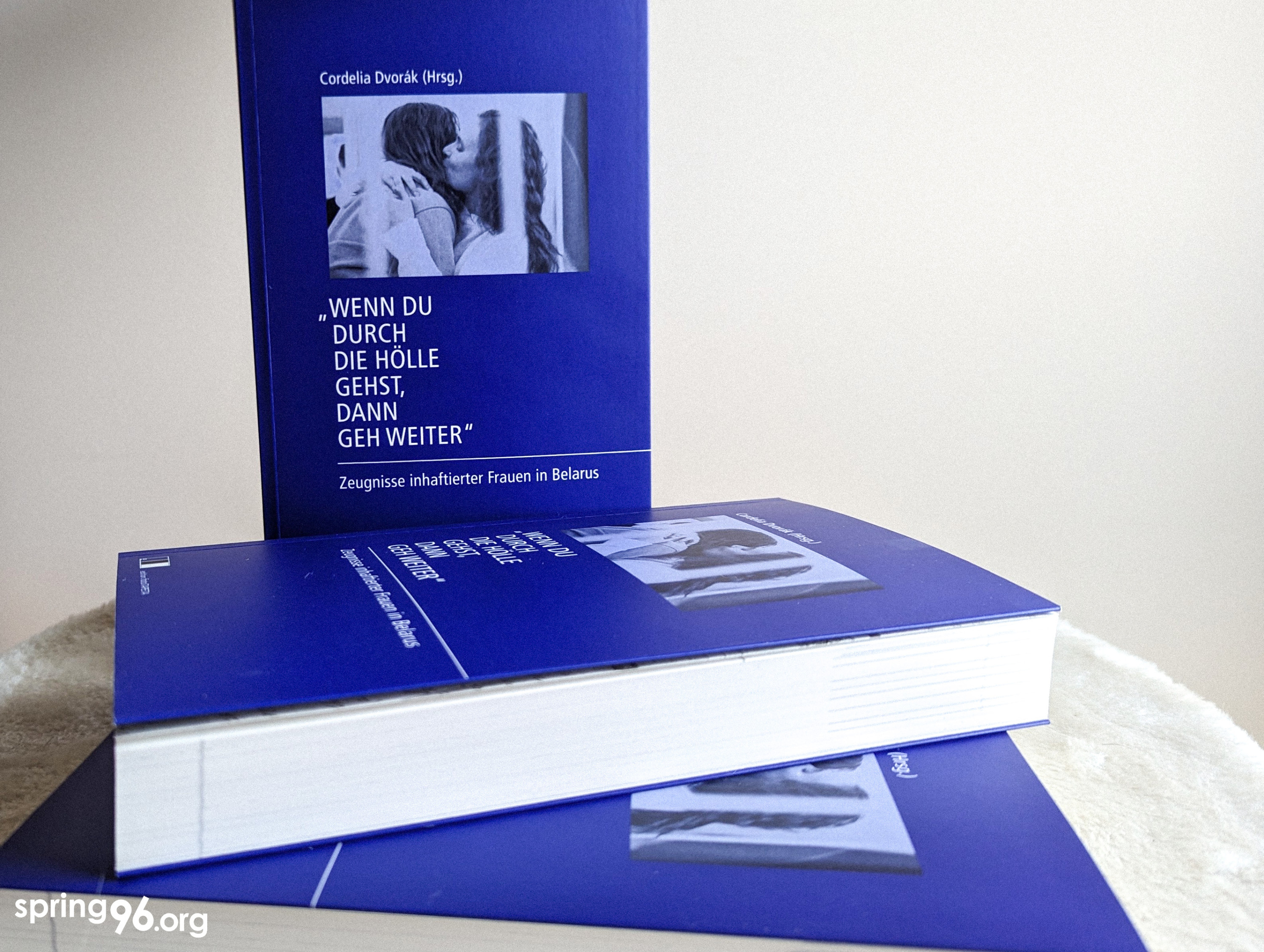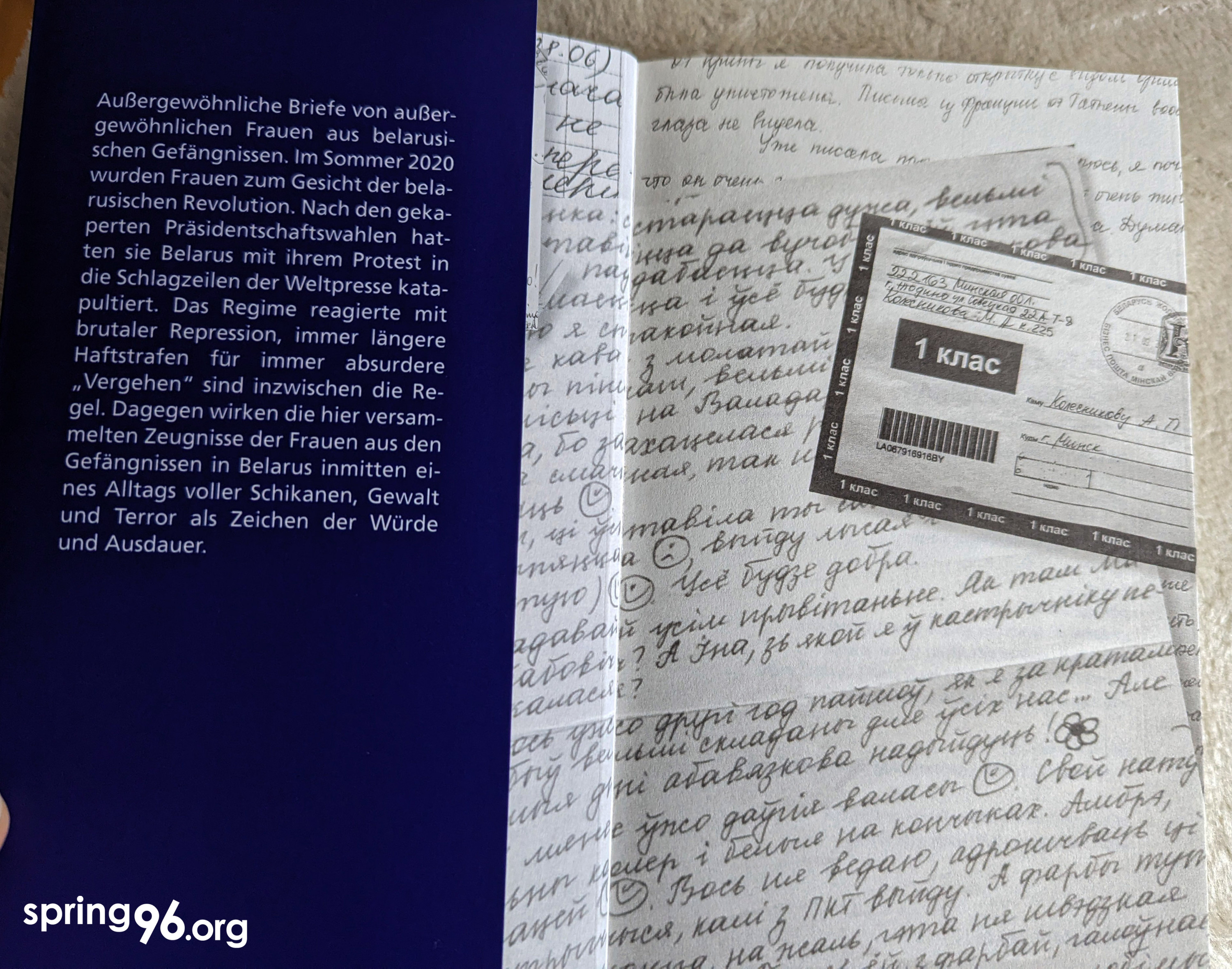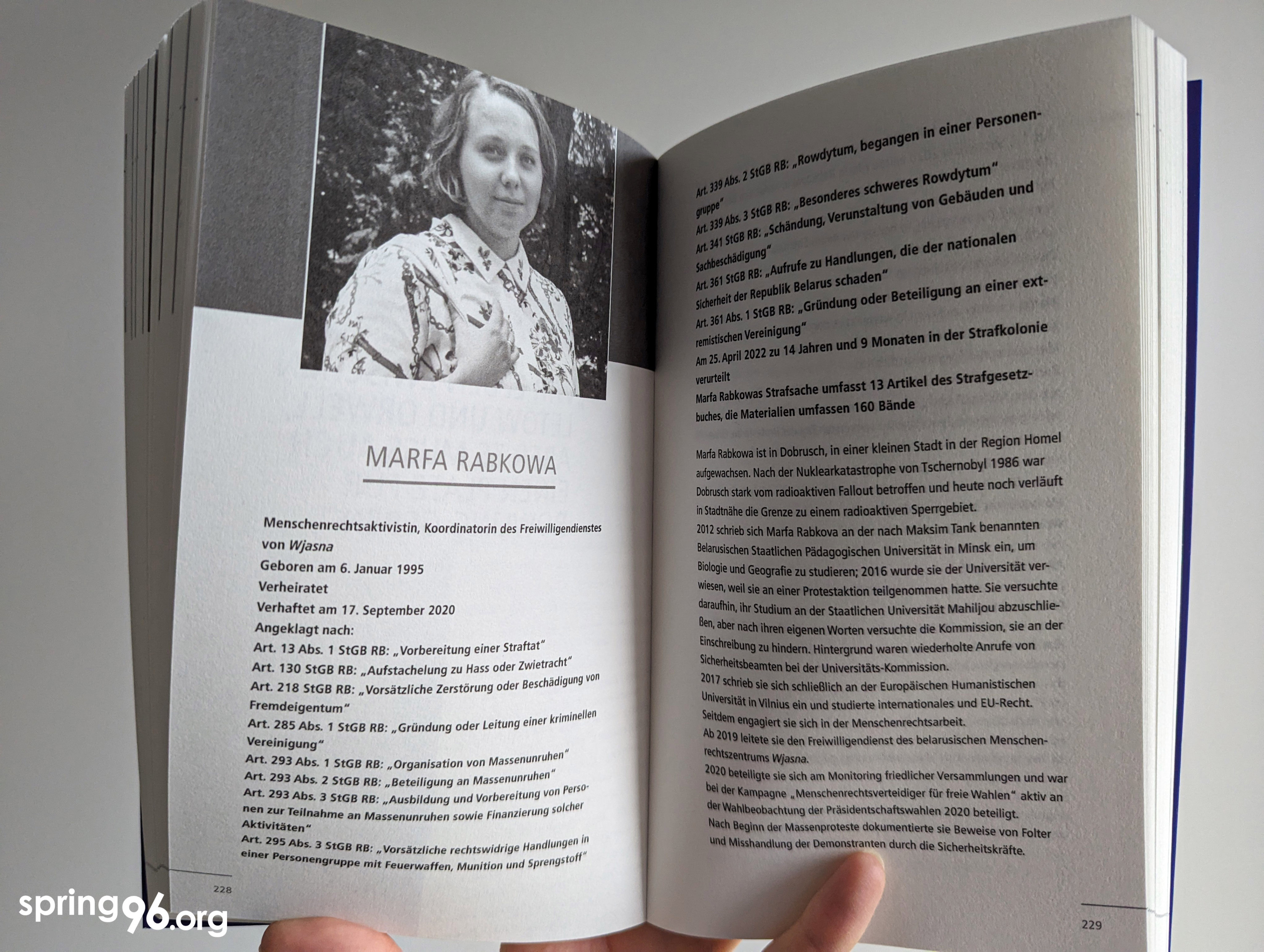"It is becoming more important both today and for the future," human rights activists of Viasna talk of the book with letters from female political prisoners
A book about female political prisoners in Belarus titled If You Go through Hell, Don't Stop (Wenn du durch die Hölle gehst, dann geh weiter) has been published in Germany. The book includes testimonies, interviews, and court speeches of Marfa Rabkova, Maryia Kalesnikava, Katsiaryna Andreyeva, Natallia Khershe, Volha Klaskouskaya, Nasta Loika, and other women who were politically persecuted as a result of the protests in Belarus in 2020. The book has been published in German. It was compiled by film director, producer, and columnist Cordelia Dvorák. The material for the book was collected for 15 months with the support of Viasna Human Rights Center and the initiative Politzek.me. Viasna human rights defenders, who participated in the collection of materials for the book, spoke about its importance.

- This is how the book Wenn du durch die Hölle gehst, dann geh weiter looks like
"In the summer of 2020, women became the face of the Belarusian revolution. Today, in the midst of a life full of persecution, violence, and terror, the testimony of women from prisons in Belarus is a sign of dignity and endurance," the annotation to the book says.
The epilogue of the book includes research texts by two Belarusian women: poet Hanna Kamar and philosopher Volha Shparaha, who went through administrative detention in 2020. The book also includes recommendations on assistance to political prisoners from Inha Lindarenka and Anton Sarokin, who also passed through detention facilities in 2020.
Cordelia Dvorák notes:
"During my intensive work with Belarus since 2020, I repeatedly came across scattered messages on social media from prisons in Belarus; often it was just one sentence, but each time I was struck to the core by the conviction, self-respect, and perseverance of Belarusian political prisoners. These messages rang in my heart day and night after that, and it was accompanied by a sense of shame in the face of problems and difficulties that are considered "terrifying" in Germany. I had an urgent need to create this anthology because of the need to make these voices heard and bring them to the public in order to break through the stone wall behind which Belarusian political prisoners disappear. In fact, the Belarus of the future is being created today, day by day, and in part thanks to the conviction in this future, which is created by the ordeal of imprisonment."
The translator of the texts for the book, Vania Miuler, who also helped in its compilation, adds:
"For a while I accompanied Cordelia Dvorák in her work on a documentary about Belarusian women, and therefore I also worked on this book. The idea for this book arose as a result of numerous meetings with Belarusian women, after getting to know their testimonies and reports. Cordelia Dvorák promoted this book project with great energy and determination so that the numerous letters and testimonies of pain, resistance, and hope that persisted in spite of everything would be available and heard here in Germany. Unfortunately, due to the large amount of material, we very often had to decide what would not be included in the book. This book, therefore, is just a fragment. But we hope that it will be available to as many people as possible so that nothing and no one is forgotten and that injustice will one day be put to an end."
Viasna human rights activists point out that behind bars, letters are an integral and important part of the life of political prisoners. Therefore, it is very important to document them as well:
"Almost all political prisoners who have been released claim that letters gave them support behind bars, together with hope and, of course, a much needed connection with the outside world. Representatives of the totalitarian Belarusian government also understand this. This is probably why, contrary to all national and international norms, prisoners' right to correspond has become severely restricted over the past two years. And that is why the book with letters from female political prisoners, collected by German researcher Cordelia Dvorák, has great importance both today and for the future."
The publication includes letters from imprisoned human rights defenders Marfa Rabkova from Viasna and Nasta Loika from Human Constanta. One of them is Marfa's letter to Nasta sent while the latter was not imprisoned.

"I will do my best to educate, bring knowledge, and protect human rights regardless of borders, time, and place. Regardless of all the circumstances," Marfa wrote from SIZO-1.

Viasna human rights activists are very glad that the words of female political prisoners from Belarus have now been heard in the world and in German. It is very important to inform the world about what is happening in our country. And this book is one of the good opportunities for that.

















